
The prelude to the uprising was the 3rd partition of Poland in 1795 (resulting in Poland disappearing from maps for 123 years), when the country was divided between Prussia, the Habsburg Empire and Russia. Following unsuccessful participation in the Napoleonic Wars (1803-15), the majority of Poland found itself under the control of Russia under the name 'Congress Poland' with King Alexander I of Russia as its leader, who never actually crowed himself King of Poland, instead appointing Grand Duke Constantine Pavlovich as de facto viceroy (a hated figure in Poland). In the beginning, the creation of Congress Poland led to relative semi-autonomy, even having a written constitution, control of an army, and its own courts and treasury; however, as time went on, the constitution was increasingly ignored. What's more, Polish social and patriotic organisations were abolished, Poles in high positions were replaced by Russians, and increased press censorship took hold from 1819 onward.
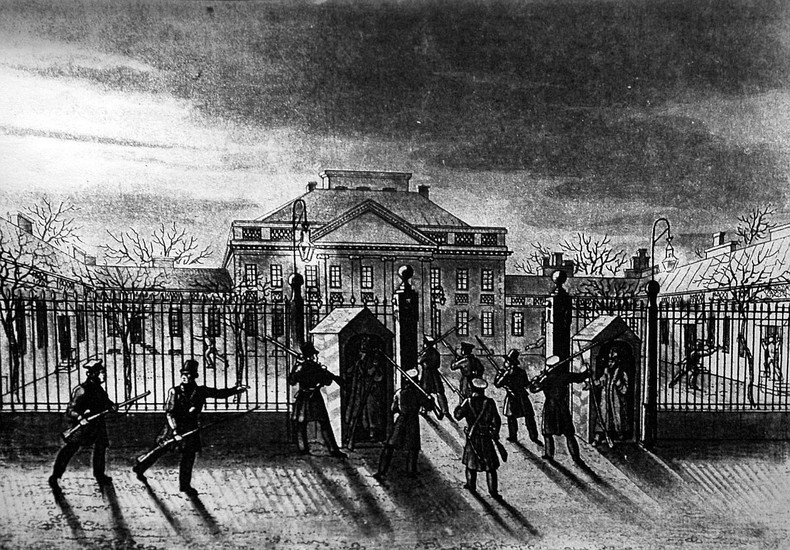
The throne later passed to Nicholas I of Russia in 1825, and the stranglehold on Polish society strengthened. In 1828, a clandestine group of Polish cadets planned to overthrow Russian rule. The final straw for the officers was the Russian plan to send Polish soldiers to quell France's July Revolution and the Belgian Revolution. The outbreak of the November Uprising occurred on 29 November 1830 when young officers took weapons from their garrison and attacked the Belvedere Palace, the seat of the Duke Constantine, who narrowly escaped dressed in women's clothing. The officers then attacked the main city arsenal and following a brief skirmish, captured it. With the help of armed civilians, the Russians were forced to withdraw from Warsaw the following day.
What followed was a time of 'calm before the storm' as the Polish authorities, surprised by the quick turn of events, quickly replaced hated Russian figures with Prince Adam Jerzy Czartoryski, the historian Julian Ursyn Niemcewicz and General Józef Chłopicki at the head of the new Administrative Council. Time was spent debating whether to proceed with negotiations or armed conflict. The Administrative Council, deemed weak in wishing to negotiate, was eventually replaced by the Provisional Government, consisting mainly of members of the Patriotic Club, which wished to take strong offensive action against Russia. Eventually, on 13 December 1830, the Sejm (Polish parliament) announced a 'National Uprising' against Russia. This was later followed on 25 January 1831 with the dethroning of Nicholas I of Russia as king of Poland, effectively another step in declaring war on Russia. What followed later was inevitable.

A Russian Army consisting of 115,000 men under Field Marshal Hans Karl von Diebitsch crossed Polish borders on 04 February 1831 and 10 days later the first encounter between the two sides took place at the Battle of Stoczek leading to a Polish victory, which only served to boost morale but did little to prevent the Russian Army's onward march to Warsaw. Later battles at Wawer (18/19 February, south-east Warsaw) and Białołęką (24/25 February, around current day ul. Białołęcka/ul. Zdziarska near the Żeran Canal) were all inconclusive and lead up to the largest battle between the two sides at the Battle of Olszynka Grochowska (today on land around Warszawa Grochów train station, part of Praga-Południe) on 25 February, with 40,000 Polish soldiers fighting against a larger Russian force of 60,000. Despite the difference in numbers, the Poles scored a military victory, however, some deem it to be inconclusive due to the superior numbers in reserve at the Russian Army's disposition. Later skirmishes and battles, despite either being inconclusive, or military victories for the Polish forces, only lead to a depletion in their fighting force. For example, at the Battle of Olszynka Grochowska, Poland suffered 7,000 casualties, and at the later Battle of Ostrołęka (25 May 1831), roughly 8,000 Poles were killed. On the other hand, the Russian Army could easily replace their fighting force, and later continued on their march to take Warsaw.
The end of the November Uprising came on 21 October 1831 and what followed was a large proportion of the remaining Polish Army laying down arms and forming a new wave of émigrés, mainly fleeing to France. Harsh rule followed and put an end to any hint of autonomy, with no Polish Army, all higher positions of authority taken exclusively by Russians, the universities of Warsaw and Wilno (Vilnius) closed, and even a ban on the Polish language being taught in schools. The process of Russification was well and truly underway.

As for the uprising itself, in an alternate universe the whole venture may have succeeded, despite the Polish forces totalling 70,000 (30% of which were raw recruits at the time of the uprising's commencement) to Russia's overall 180,000 regular forces. Historians have highlighted a number of factors which led to the November Uprising failing, from the lack of successful organisation and management of the whole undertaking (indeed, many officers and even generals didn't fancy their chances against the Russians), to the Sejm (parliament) not ensuring peasants' rights to land with anticipated land reforms, which effectively lead to pessimism amongst the Polish peasantry, resulting in the 'National Uprising' not being that at all. The Poles sought help from the regions of Volhynia (current day Ukraine), Belarus and Lithuania (formerly parts of Poland). With the exception of the Lithuanian Uprising, led by countess [of the partitioned lands of Polish-Lithuanian Commonwealth] Emilia Plater, despite heroic efforts, the skirmishes employing guerilla warfare had limited impact on overall Russian progress. Foreign powers too did not feel sympathetic to Poland's cause, despite hopes in Poland to the contrary.
Although foreign powers were not in favour of intervening, those in Europe and beyond generally looked upon the Poles' efforts positively; indeed, there were notable names who supported their cause. American writer Edgar Allan Poe offered to join the uprising and fight the Russians. Perhaps more surprisingly, a Scottish poet from Glasgow, Thomas Campbell, who championed the French Revolution and the victims of black slavery, also supported the Poles in their efforts, highlighting this in his collection of poems The Pleasures of Hope. Following the November Uprising's failure, Campbell created the 'Literary Association of the Friends of Poland', founded on 25 February 1832, to show solidarity with the people of Poland and keep their cause alive in the British consciousness. Amazingly, Prince Adam Jerzy Czartoryski attended a dinner held by the association in Edinburgh in 1835. The society still functions to this day under the name 'Anglo Polish Society'.
And so it was to pass, as with a number of Poland's uprisings, the November Uprising of 1830-31 failed, but there was to be another attempt not long after in the 1860s...


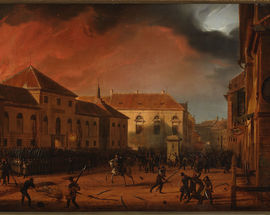
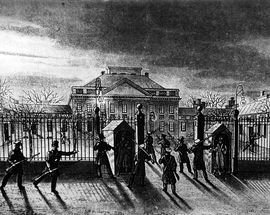
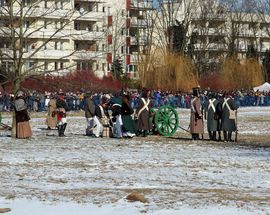
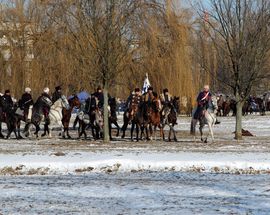
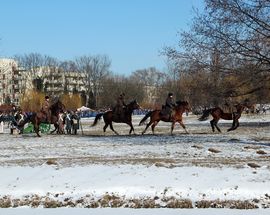
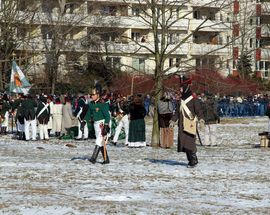

Comments